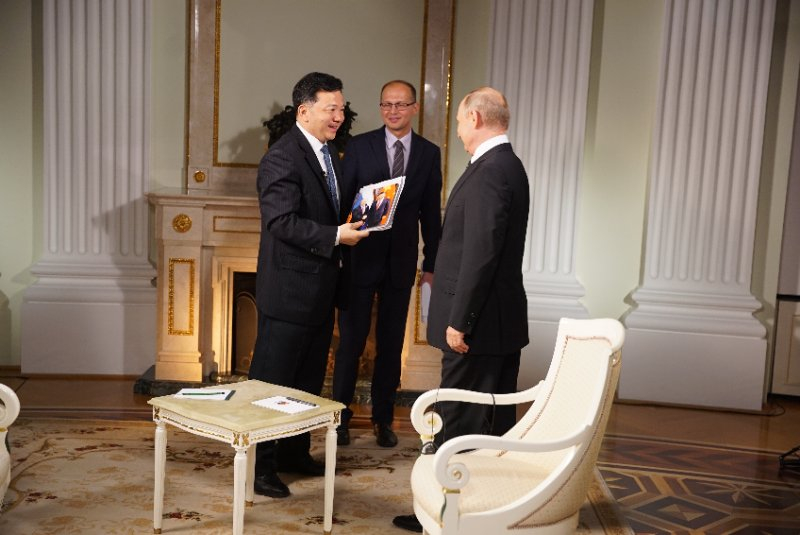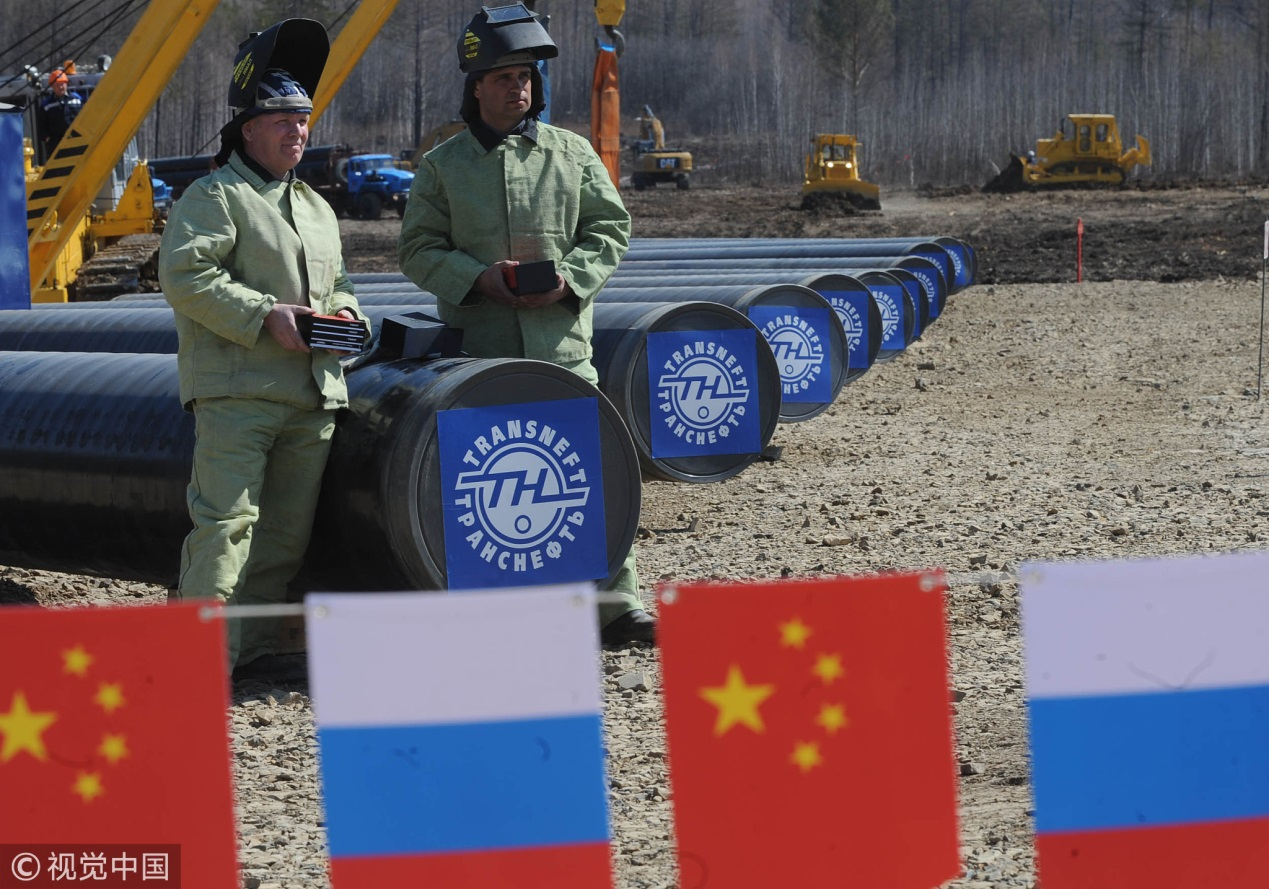
Politics
07:34, 06-Jun-2018
China, Russia to increase cooperation in key areas
CGTN
02:41

Russia will continue its cooperation with China in traditional fields, and will make joint efforts in the areas that are important both at present and in the future, said Russian President Vladimir Putin during an exclusive interview with Shen Haixiong, president of the China Media Group, on May 31 at the Grand Kremlin Palace in Moscow, Russia.
This is the first time that President Putin has accepted a foreign interview since his new term of presidency, and also the first time to have an exclusive interview with Chinese media in the Kremlin.

Shen Haixiong (L), president of the China Media Group, talks with Russian President Vladimir Putin. /CCTV Photo
Shen Haixiong (L), president of the China Media Group, talks with Russian President Vladimir Putin. /CCTV Photo
Putin said people’s livelihood and digital economy are the two main directions for development when acknowledging China’s great efforts in these areas. He also pointed out that the two directions are closely related to the future development trend of technologies, such as automation and artificial intelligence (AI).
The major inventions today, those with bright prospects in particular, all happen in the realm of science and technology, said Putin, calling for more bilateral cooperation in the new areas with China while continuing collaboration in the traditional fields.

/VCG Photo
/VCG Photo
The country has “conducted intensive studies in these areas, and we have plans and intentions to cooperate with China,” said Putin, adding that he hoped the two countries can work together to pursue more long-term development.
“We should also work together to develop digital technology, manufacturing, infrastructure, energy and alternative energy. Scientific achievements will be and must be converted into new driving forces to produce more results,” said Putin. “If we can make it, we’ll undoubtedly lead the world in these areas. And we are set to work towards that end.”
Russia – China’s biggest source for crude oil

April 27, 2009: A construction site of a branch pipeline which will run into China from the Eastern-Siberia Pacific Ocean (ESPO) oil pipeline. /VCG Photo
April 27, 2009: A construction site of a branch pipeline which will run into China from the Eastern-Siberia Pacific Ocean (ESPO) oil pipeline. /VCG Photo
In 2017, Russia maintained the role as the biggest import source of China in terms of crude oil and electric power. According to the Yellow Book of Russia: Annual Report on Development of Russia (2018), which was released in Beijing on June 1, Russia exported 59.8 million tons of crude oil to China last year, a year-on-year growth of 13.9 percent.
With the beginning of commercial operation of the second line for the China-Russia oil pipeline on Jan. 1, the annual import scale through the pipes will be increased from 15 million tons to 30 million tons.
The second line was built in parallel to the first one between Mohe and Daqing, both in northeast China's Heilongjiang Province. Originating in the Russian town of Skovorodino, the line enters China at Mohe and terminates at Daqing. It operated smoothly and its transmission was 3,812 cubic meters per hour at the Mohe station.

SITEMAP
Copyright © 2018 CGTN. Beijing ICP prepared NO.16065310-3
Copyright © 2018 CGTN. Beijing ICP prepared NO.16065310-3